Introduction
Many people take their phones to the toilet for a “quick scroll.” But what seems like a harmless habit could silently harm your digestive system.
A recent medical study revealed that spending just five extra minutes sitting on the toilet—often while scrolling on a smartphone—can increase the risk of developing hemorrhoids (piles) by up to 46%.
Doctors say this common modern behavior leads to constipation, straining, and prolonged pressure on rectal veins — all of which contribute to piles and other bowel issues.
In this blog, Quickobook and gastroenterology experts explain why this happens, what signs to watch for, and how to build healthier toilet habits to protect your gut and rectal health.
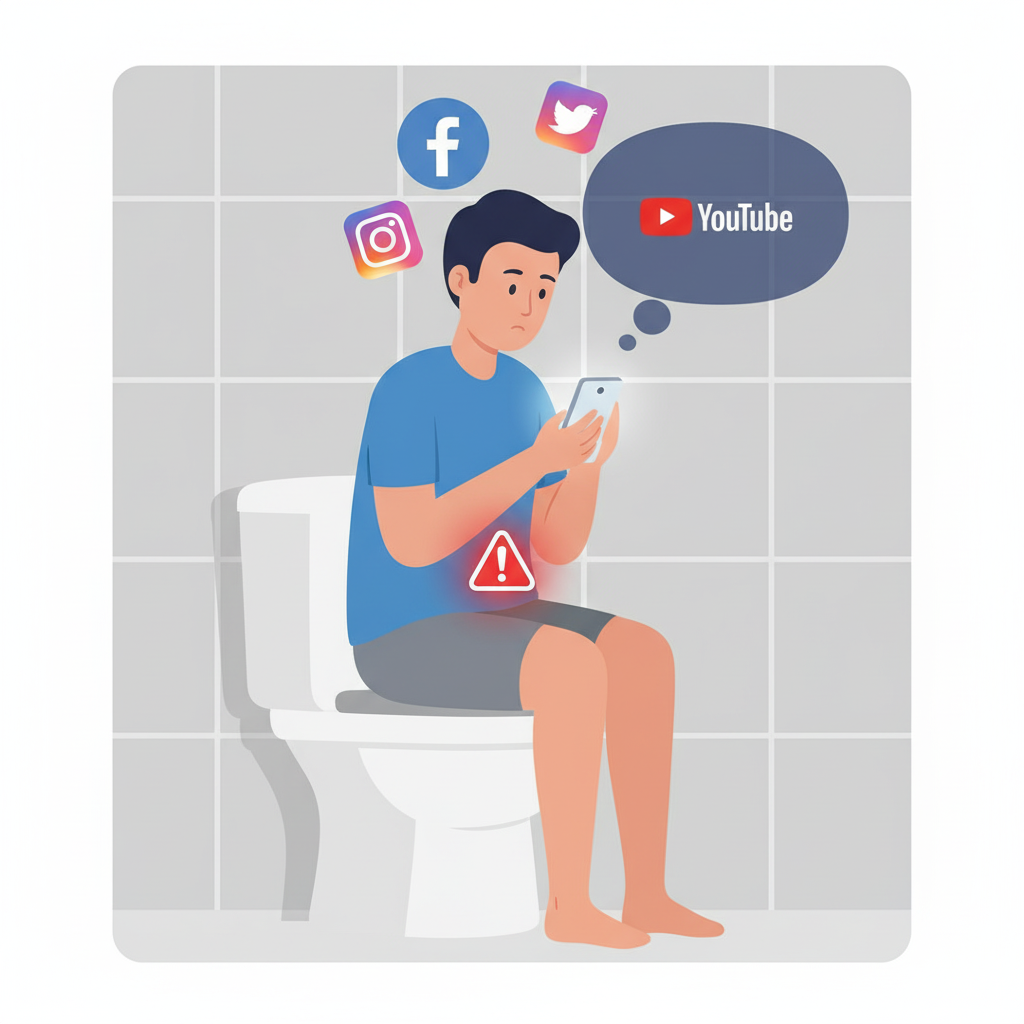
1. What the Study Found
According to the new study published in a leading gastroenterology journal:
- People who sit on the toilet for more than 10 minutes per session were significantly more likely to develop hemorrhoids.
- Most participants admitted to using their smartphones or reading while on the toilet.
- Prolonged sitting caused increased pressure in the lower rectum and slower blood circulation.
This study highlights a rising lifestyle problem — the blending of technology and bathroom time — and its surprising impact on our digestive health.
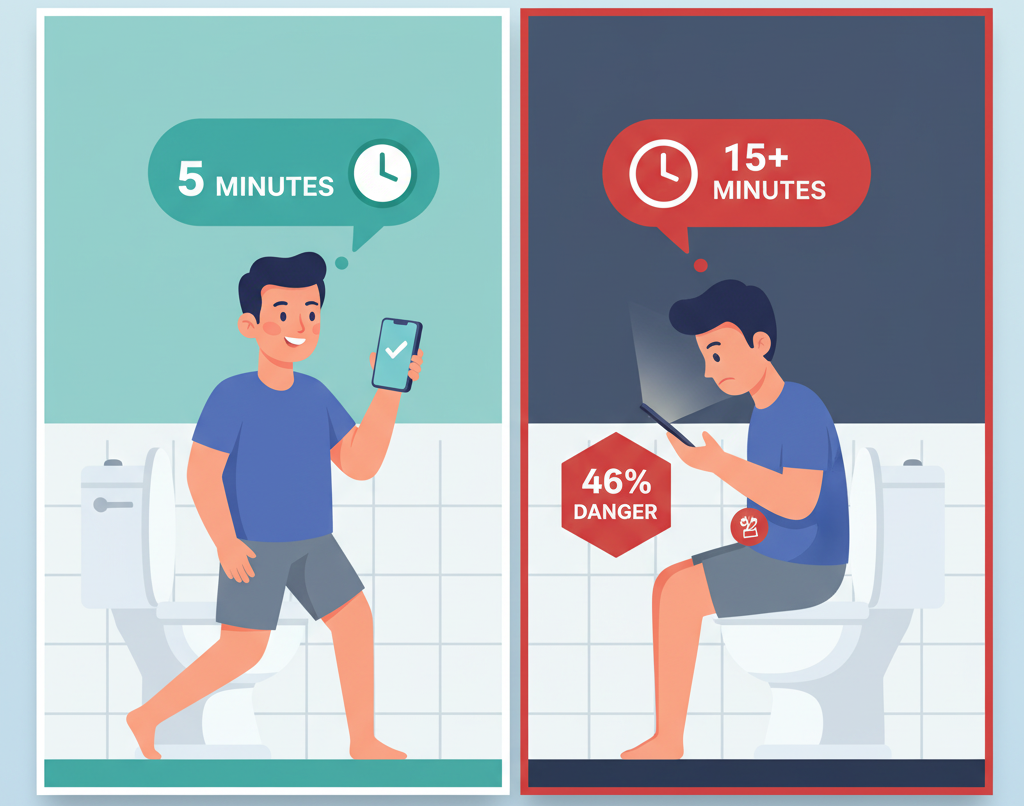
2. What Are Hemorrhoids (Piles)?
Hemorrhoids, commonly known as piles, are swollen veins around the anus or lower rectum. They can cause:
- Pain during bowel movements
- Itching and irritation
- Bleeding after passing stool
- A lump or swelling near the anus
There are two main types:
- Internal hemorrhoids: inside the rectum
- External hemorrhoids: under the skin around the anus
While piles are common among adults, prolonged toilet use and constipation can make them worse or trigger new cases.
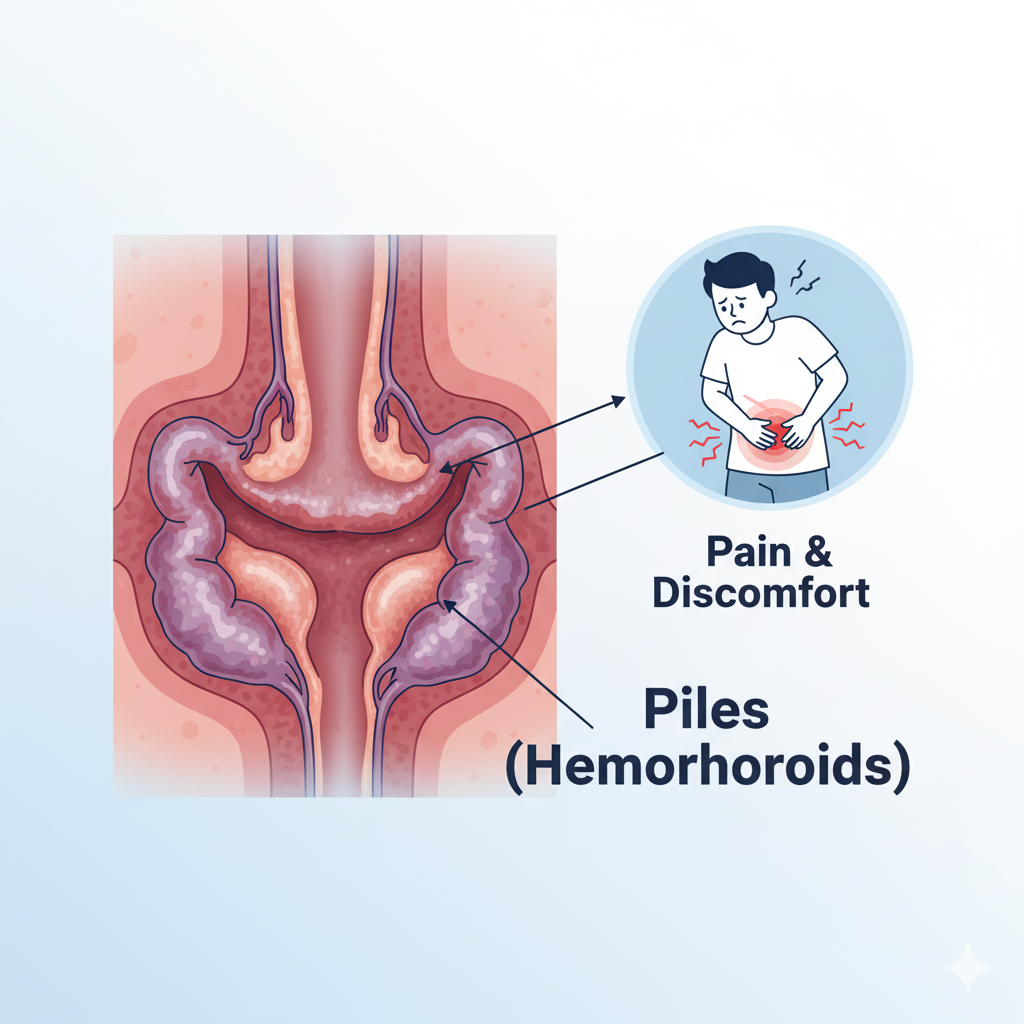
3. Why Scrolling on the Toilet Is Risky
Gastroenterologist advice: The human rectum is not designed to handle prolonged sitting under pressure. When you sit for long periods — especially while distracted by a phone — your pelvic muscles and veins are strained.
Here’s what happens:
- Prolonged sitting increases blood flow and pressure in anal veins.
- Straining from constipation adds even more stress.
- Poor posture on the toilet worsens rectal circulation.
- Inattention while scrolling delays bowel completion, keeping pressure longer.
The result? Chronic irritation, swelling, and development of hemorrhoids.
4. The Link Between Constipation and Toilet Habits
Constipation is one of the leading causes of piles in India.
When stools are hard and dry, it takes more effort to pass them — leading to straining and pressure.
READ ALSO: Is Your Cooking Oil Making You Sick? Cardiologist Reveals The Best And Worst Oils For Heart Health
Causes of Constipation:
- Low-fiber diet
- Dehydration
- Irregular eating habits
- Lack of exercise
- Overuse of smartphones while ignoring bowel cues
Quickobook gastroenterologists emphasize that spending too long on the toilet often means you’re straining unnecessarily or not responding naturally to your body’s signals.
5. Common Symptoms to Watch For
If you have been scrolling or sitting too long during bowel movements, watch for these warning signs:
- Bleeding during or after defecation
- Itching or burning near the anus
- Pain or swelling after passing stool
- Feeling of incomplete bowel movement
- Constipation or hard stools
If these symptoms persist, you should consult a gastroenterologist for diagnosis and early treatment.
6. How Long Should You Stay on the Toilet?
Most doctors recommend spending no more than 5 minutes per bowel movement.
If it takes longer, you may be dealing with constipation or an unhealthy routine.
Expert Tip:
- Go when you feel the urge — don’t delay.
- Avoid distractions like smartphones or reading materials.
- Keep your feet slightly elevated (a small stool helps improve bowel posture).
This position reduces strain and helps stool pass more easily.
7. Prevention Tips: Protecting Your Digestive and Rectal Health
a. Improve Your Diet
- Eat more fiber-rich foods: fruits, vegetables, oats, brown rice, and whole grains.
- Stay hydrated with 2–3 liters of water daily.
- Include natural laxatives like papaya, figs, and flaxseeds.
b. Fix Toilet Habits
- Do not use phones in the toilet.
- Sit straight, avoid slouching.
- Do not strain or push forcefully.
- Leave if nothing happens within 5 minutes; try again later.
c. Stay Active
- Exercise or walk for at least 30 minutes daily.
- Avoid sitting for long hours at work without breaks.
d. Manage Stress
Anxiety and irregular routines can slow digestion. Yoga and breathing exercises can help regulate bowel movement.
8. Treatment Options for Hemorrhoids
If hemorrhoids develop, don’t ignore them. Treatments vary depending on severity:
- Home remedies: Sitz baths, fiber supplements, warm compresses.
- Medications: Topical creams or suppositories prescribed by your doctor.
- Minimally invasive procedures: Rubber band ligation or laser therapy.
- Surgical options: For advanced or recurrent hemorrhoids.
Gastroenterologist advice: Avoid self-medication. Always consult a specialist to confirm the diagnosis and proper treatment plan.
9. Lifestyle Changes Recommended by Gastroenterologists
- Use the toilet only when you feel the natural urge.
- Avoid using smartphones in the bathroom.
- Include probiotics like curd or buttermilk in your diet.
- Limit caffeine and spicy foods that irritate the gut.
- Keep a consistent bowel schedule — preferably in the morning.
10. When to See a Doctor
You should consult a gastroenterologist if you notice:
- Blood in stool or toilet paper
- Persistent pain or swelling in the anal area
- Frequent constipation
- A feeling of incomplete evacuation
Through Quickobook, you can easily book an appointment with a qualified gastroenterologist near you for safe, private, and affordable care.
11. Risks of Ignoring the Habit
If prolonged sitting and scrolling become daily habits, you risk developing:
- Chronic constipation
- Hemorrhoids (piles)
- Anal fissures
- Rectal prolapse
- Reduced pelvic muscle tone
Preventing these complications starts with awareness and small lifestyle adjustments.
12. Quick Summary: Scrolling and Toilet Health
|
Habit |
Health Impact |
Risk Level |
|
Using smartphone on toilet |
Delays bowel emptying |
High |
|
Sitting >10 minutes |
Increases rectal pressure |
High |
|
Ignoring urge to go |
Leads to constipation |
Moderate |
|
Fiber-rich diet |
Improves bowel health |
Beneficial |
13. Frequently Asked Questions (50)
Q1. Can scrolling on the toilet cause piles?
A1. Yes. It increases rectal pressure and time spent sitting, leading to hemorrhoids.
Q2. How many minutes are safe to sit on the toilet?
A2. Ideally under 5 minutes per session.
Q3. Why does smartphone use affect digestion?
A3. It distracts your brain, delaying bowel movement signals.
Q4. Can constipation cause piles?
A4. Yes, it’s one of the main causes due to straining.
Q5. What foods can prevent constipation?
A5. Fruits, vegetables, whole grains, and plenty of water.
Q6. Does dehydration worsen hemorrhoids?
A6. Yes. Lack of water hardens stool and increases straining.
Q7. Can I use stool softeners daily?
A7. Only under medical guidance. Overuse may weaken bowel muscles.
Q8. What are early signs of piles?
A8. Itching, pain, or small drops of blood after passing stool.
Q9. Can piles go away naturally?
A9. Mild cases may improve with diet and lifestyle changes.
Q10. Should I stop using my phone in the toilet?
A10. Yes. It prolongs sitting time and increases hemorrhoid risk.
Q11. How much fiber should I eat daily?
A11. Around 25–30 grams per day for adults.
Q12. Is it normal to bleed during bowel movements?
A12. No, it indicates hemorrhoids or fissures — see a doctor.
Q13. How does posture affect bowel movement?
A13. Proper posture reduces rectal strain and helps stool pass easily.
Q14. Can piles be treated without surgery?
A14. Yes, mild to moderate cases respond to lifestyle and medication.
Q15. Is sitting long on the toilet harmful even without a phone?
A15. Yes, extended sitting alone can raise risk.
Q16. Does stress cause constipation?
A16. Yes, it slows digestion and alters gut rhythm.
Q17. How common are piles in India?
A17. About one in three adults experience symptoms at some point.
Q18. Can children get hemorrhoids?
A18. Rarely, but chronic constipation can cause them.
Q19. Is spicy food bad for hemorrhoids?
A19. Yes, it can increase irritation and discomfort.
Q20. Can exercise help prevent piles?
A20. Absolutely. It improves circulation and digestion.
Q21. Which doctor should I consult for piles?
A21. A gastroenterologist or proctologist.
Q22. Can fiber supplements help?
A22. Yes, if your diet lacks enough fiber.
Q23. Are sitz baths effective?
A23. Yes, they soothe irritation and reduce swelling.
Q24. How do smartphones worsen digestive habits?
A24. They cause distraction and delay natural bowel reflexes.
Q25. Does alcohol affect piles?
A25. Yes, it dehydrates the body and worsens constipation.
Q26. Is coffee bad for constipation?
A26. It can help some, but too much caffeine dehydrates.
Q27. Can hemorrhoids turn into cancer?
A27. No, but chronic bleeding must be evaluated by a doctor.
Q28. Can yoga help relieve constipation?
A28. Yes, poses like Pavanmuktasana improve bowel function.
Q29. Are over-the-counter creams safe?
A29. Only temporarily; consult a doctor for lasting relief.
Q30. Can hemorrhoids recur?
A30. Yes, if you don’t correct habits.
Q31. Is bleeding always due to piles?
A31. No, other conditions like fissures or polyps may cause it.
Q32. How long does it take for piles to heal?
A32. Mild cases improve in 1–2 weeks with care.
Q33. Can pregnancy cause hemorrhoids?
A33. Yes, due to pressure and hormonal changes.
Q34. Can a sedentary job increase risk?
A34. Yes, long sitting periods reduce rectal circulation.
Q35. Should I avoid spicy or oily foods?
A35. Yes, they can irritate the digestive tract.
Q36. What should I drink to ease constipation?
A36. Warm water, lemon water, or herbal teas.
Q37. Can walking after meals help?
A37. Yes, it stimulates bowel movement naturally.
Q38. Can hemorrhoids cause fever?
A38. Rarely, unless infected.
Q39. Is surgery painful?
A39. Modern laser treatments are minimally painful.
Q40. What is the best sitting posture for bowel movement?
A40. Slightly bent forward with feet elevated.
Q41. Can I use wet wipes for cleaning?
A41. Yes, but choose alcohol-free wipes to prevent irritation.
Q42. Can hemorrhoids cause anemia?
A42. Chronic bleeding may lead to low hemoglobin levels.
Q43. How do I stop bleeding during stool?
A43. Increase fiber, stay hydrated, and seek medical care.
Q44. Can home remedies cure piles?
A44. They can help early stages but not severe cases.
Q45. Can overweight people get piles easily?
A45. Yes, due to more pelvic pressure.
Q46. Is skipping breakfast linked to constipation?
A46. Yes, it disrupts digestive rhythm.
Q47. What’s the best time to pass stool?
A47. Morning, after waking up and drinking water.
Q48. Can children develop bad toilet habits?
A48. Yes, if allowed to use phones in the toilet early.
Q49. Can hemorrhoids be completely prevented?
A49. Yes, with good diet, hydration, and toilet habits.
Q50. How can I consult a gastroenterologist online?
A50. Through Quickobook, where you can book trusted specialists from home.
Conclusion
Your bathroom habits say more about your health than you think. Prolonged scrolling on the toilet can lead to constipation, piles, and long-term rectal problems.
Follow healthy habits, eat fiber-rich foods, and keep your toilet time short. If symptoms persist, consult a gastroenterologist through Quickobook for expert care and early relief.
Quickobook CTA
Book your gastroenterology consultation or digestive health check-up now with Quickobook—India’s trusted healthcare platform for safe, private, and affordable care.
Disclaimer
This article is for educational purposes only. It is not a substitute for professional medical advice. Always consult your doctor or gastroenterologist before starting any treatment or changing your diet.
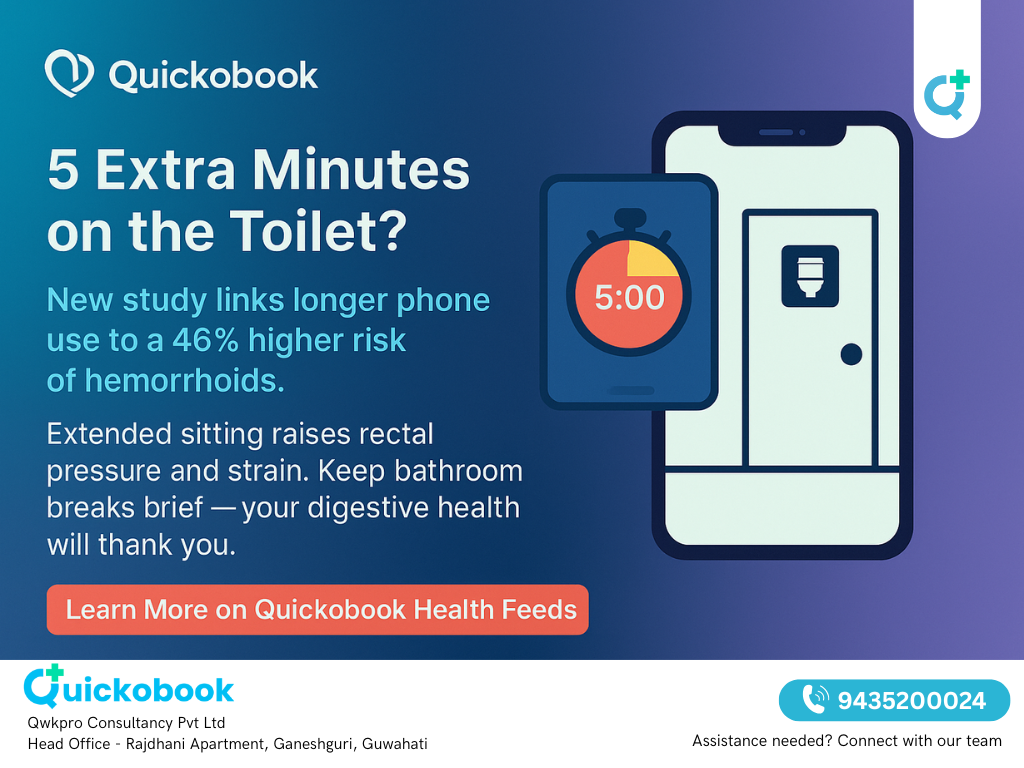






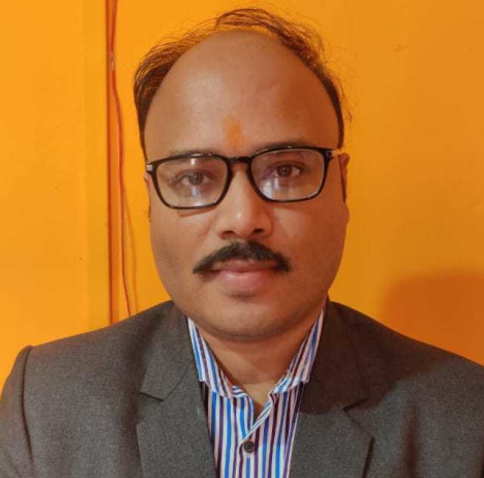


Comments (0)
No comments yet. Be the first to share your thoughts!
Leave a Comment